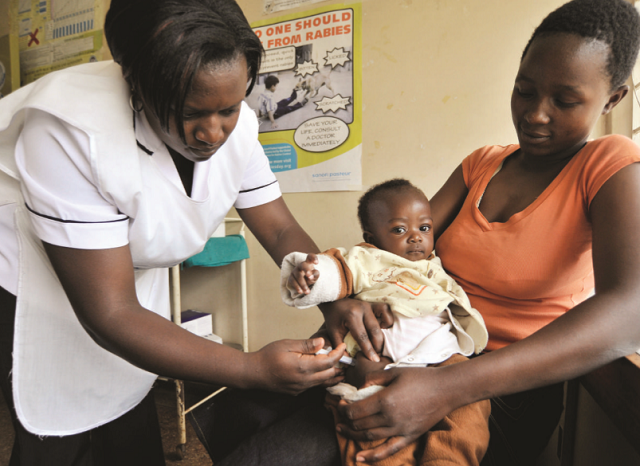
All vaccines are imported and not even government can provide some of them consistently.
Early this year, for instance, the government re-introduced the injectable Inactivated Polio Vaccine (IPV). But a few months on between September and October, health facilities suffered stock outs forcing parents to skip the vaccine and others to pay for them expensively.
Also, despite being introduced in Uganda in 2013, the Pneumococcal Conjugate Vaccine (PCV) which combats life threatening conditions like pneumonia and meningitis that can cause permanent mental disabilities for survivors has not been readily available for whoever needs it. Parents The Independent spoke to said they had paid between Shs60, 000 and Shs100, 000 for the vaccine.
Over 90% of Uganda’s immunisation programmes are funded by donors. The Global Alliance for Vaccines and Immunization (GAVI) which is Uganda’s main funder has since 2000 to October this year disbursed to the country money to the tunes of $300m in vaccine funding.
The 2015 Global Alliance for Vaccines and Immunization (GAVI) Full Country Evaluation report shows that the agency provided Uganda with about $26million (about Shs90 billion) in vaccines and related supplies in 2013 but by the end of 2014, PCV was not fully on routine immunisations due, in part, to stock-outs at multiple levels of the health system. While more health facilities had started providing it, by the third quarter of 2015, PCV was still not yet fully routinised which forced some people to continue getting the scarce vaccine from private providers at a fee. Globally, a 2015 report by Médecins Sans Frontières dubbed “The Right Shot” shows there was a 68 fold increase in vaccine prices between 2001 and 2014.
The report also indicates that the Uganda government’s contribution to immunisation activities fell between 2012/13 and 2013/14 by Shs1.2 billion.
Opar says the government is determined to increase funding for vaccine and is resorting to co-funding. He cites vaccination against pneumonia where 5% of the programme is funded by the ministry. He, however, notes that the country still faces a challenge of absence of cold chain storage facilities and that sometimes vaccines go bad before being put to use. Such challenges raise questions of sustainability of immunisation programmes to which almost every year a new vaccine is added.
****
editor@independent.co.ug
 The Independent Uganda: You get the Truth we Pay the Price
The Independent Uganda: You get the Truth we Pay the Price



